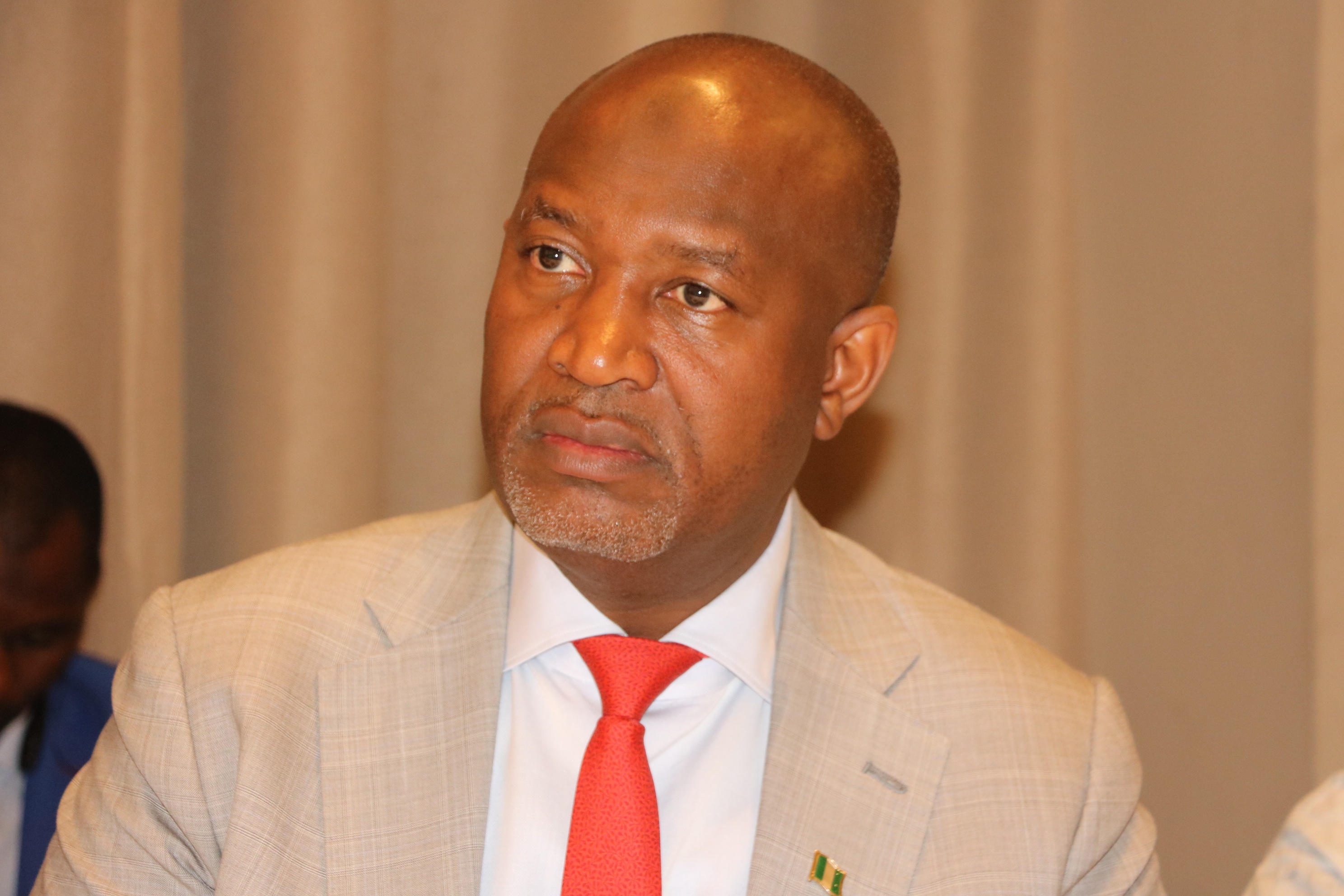
Aviation industry experts still insist that if government must concession the airports, it must ensure there is legal framework and due process.
Recently Aviation Round Table (ART), a think-tank group of industry experts, held a webinar conference on airport concession and sounded a note of warning to the federal government, insisting that for the effort to be successful it must abide by international standard. They also acknowledged that private sector funds must be injected to the industry to develop the airports.
International aviation consultant and Chief Executive Officer, African Aviation Services Limited, Nick Fadugba said that concession of airports could be controversial and noted that it must be carried out following due process because not doing it well would have bad consequences.
Looking at it from the global angle, Fadugba said that there were successful airport concessions but there were those that were badly done and it ended up in fiasco and warned that the federal government should ensure that it abides by the rules in its effort to concession airport facilities.
“I want to make a statement right from the start that doing it (concessioning the airports) badly is worse than not doing it at all. I think we should bear this in mind. Transparency is critical in ensuring success. Let me go back a bit. In the old days airports and airlines around the world were all government owned primarily. And then we had deregulation, commercialization, privatization and then globalization. It was only subsequently that airports started to be privatised and concessioned around the world. Some good stories and some bad stories around the world; I think the most successful was the privatization of the British Airport Authority and they have flourished. Obviously, in the UK they have a vibrant aviation industry pre-covid-19, of course.
Beyond this, there have been not so successful stories. If we take Argentina for example, the government of Argentina way back in 1998 decided to privatise its airports. They had 33 airports at that time and they gave them to one consortium but by 2007 the agreement had gone badly; the consortium could not afford the fixed annual fees to be paid to the government and the whole thing had to be renegotiated. Let’s not forget that investors are in this business to make money and therefore the terms of agreement must followed,” Fadugba who is the Chairman of African Business Aviation Association (AfBAA), said.
Resolving Past Disagreements
Former Director General of the Nigerian Civil Aviation Authority (NCAA), Dr Harold Demuren in his presentation pointed out the issues that could undermine the concession process and that is lack of legal framework.
He appealed to the federal government to resolve the various legal issues with the Federal Airports Authority of Nigeria (FAAN) in order to boost the confidence of investors and encourage them to commit funds to develop airport infrastructure.
“We need to resolve all the various legal issues with FAAN, since we are talking about (concessioning airport facilities in) Lagos; if not, nobody will take you seriously. Any investor coming in will be very worried. What about our legal framework? Do we obey our rules? Do we break contracts? This is so important that we need to resolve it and it is never too late for good sense to prevail.
Demuren said that now that the federal government has concluded plans to concession airport infrastructure is the time it needs to resolve lingering issues concerning past concessions that are trailed by controversies and legal logjam. He gave example with the issues relating to the concession of the domestic airport at the Murtala Muhammed International Airport (MMIA), Lagos developed and being run by Bi-Courtney Aviation Services Limited (BASL), the concessionaire. He warned that unless the controversy is resolved, other investors might not be willing to commit funds to develop airport facilities, especially in Lagos.
“We must take the opportunity to resolve these issues. Nobody will bring money in to go and invest in any terminal in Lagos when they know there is problem with terminal 2 (MMA2). There is a risk department who will ask you that you have not resolved that, where are you going? What happens to you? What is your guarantee? Not only are we dealing with terminal 2, we also have another one with Chief Harry Akande with the international side. That case has gone to the court in England; they even wanted to attack the accounts of the federal government of Nigeria.
“The Ministry of Justice is also trying to resolve that also. We need to resolve all these problems. We can’t continue to quarrel; we must find a solution. Enough is enough; let by gone be by gone. MM2 has gone to borrow money to do all these and they are paying interest. Who is going to discuss that? Where do we come in line on how to resolve that? And government seems faceless, one will come in today, another one will come tomorrow, and you change the policy and that is why we are having this problems.
“The present Managing Director of FAAN didn’t sign that agreement; another person signed that agreement and that person is gone. The Minister who signed the other one is gone, so government is faceless but we inherit this problem and they will continue to be there,” he noted.

Appeal
Demuren therefore appealed to the Chairman of BASL, Dr Wale Babalaki, Chief Akande and all those who are having problem with FAAN to come together and sit down and talk.
“Let’s discuss and solve this problem, we can’t continue this way, nobody is going to win. And you can’t have any successful concession of terminal if we don’t resolve this. They will refer to it; the banks will refer to it because before they give you money they have a risk committee. This is the first thing they will refer to. I think it is important that we do this for our country and for our land,” the former Director General of NCAA said.
Demuren explained to Chief Babalakin that there is only one regulator in the aviation industry, which is NCAA, noting that FAAN, which manages the airports, is a service provider and urged him to resolve his company’s issues with the agency about the concession of MMA2.
“However, don’t forget FAAN is the cash cow of the industry; that is the big place where everybody, whether it is National Assembly or the Ministry, that is where they look to, so it is tough in handling them. But it is very important now that we are discussing this; everything has been concessioned from FAAN. We are just blaming FAAN, everything has been taken out, they control nothing; everything is gone. So you can’t compare FAAN as an airport with other places. My advice today I think ART should continue this kind of discussion and let’s try and resolve this problem and let the Minister of Aviation, FAAN and the government look at this problem, let’s resolve it so that the new concession you are entering into will not end like this again,” Demuren advised.
Abide by Agreement
In his speech during the webinar, Chief Babalakin said that his company pioneered comprehensive concession of airport terminal and therefore was used as guinea pig.
“We are pioneers but appropriately described as guinea pig. It is important that the authorities decided that they want a proper concessioning process and once this concession is signed it is more important that they stick to the rules of the game. We have spent 13 years trying to enforce an agreement and till date we only have about 30 per cent to 35 per cent of our right under the various agreements implemented. As you mentioned that in recent times a new chief executive of FAAN has been engaging us in negotiations, this is a breath of fresh air. Because in the last 12 years what we have received is battery.
“We finished the concession on schedule, only the private sector can finish a concession on schedule because its finances are tied to that project. You can count the number of public works that are finished on schedule. We have 40 per cent of guarantee traffic, the agreement we signed assured us of all domestic traffic, till date we don’t have it. Rather, our regulator (FAAN) decided to be competing with us with government money next door. So we have to use private sector money, then next door there is somebody with government money,” Babalakin said.
He noted that the judgments he had over the General Aviation Terminal (GAT) and other cases are still subsisting that should be looked into before another concession agreement should be signed by government.
“Nobody will take things seriously when they know that you have no regard for resolution process. And that even when the dispute is resolved there is no guarantee that it will be obeyed. I am happy I am seeing Dr Demuren on the screen, under the plan we had by now we will had finished the phase two of MM2 which would have outclassed the airport in Ghana. But the land that was given to us expressly next to the airport has not been delivered to us. When Dr Demureen was Director General of NCAA, he tried to find a solution to the problem,” he said.
Babalakin said his company had an agreement with government to build a monorail linking all the terminals at the Lagos airport; install a power plant to provide power for BASL and sell to the aviation industry.
“Interestingly, this was not allowed and the next thing we discovered was that the government spent more money than the cost of our building this power plant on generators. So that shows you the priority. We also had the right to provide other services there; all these are with presidential approval. None has been implemented. When I hear about concession, all I say is that please follow the law only so that you are not exposed to phenomenal damages, especially if some of the bidders come from outside. I doubt if anybody who is coming from a very structured company will bid for any of those facilities because they will always ask for reference and they will be told that MM2 though successful has been completely undermined, hindered by refusal to honour agreements,” Babalakin said.

Need for Concession
In his contribution during the webinar, the Minister of Aviation, Senator Hadi Sirika described the concession of airport facilities as one leg of the component of the road map, which the current administration has been driving since 2015.
“In our own wisdom in this government we feel that the assets belong to 200 million people and it cannot be sold. However, for it to be improved upon and for the good service to be delivered to the people, certainly it had to be that it is given to private hands to improve upon it at a predetermined number of years and then it comes back to the people and them maybe perhaps renegotiate it either with the same entity or with another interested party. In that way the asset remains the property of the Nigerian people but the service that is needed is given and the facility has been improved upon,” the Minister explained.
The Minister noted that even if government wishes to upgrade the airport infrastructure, it does not have the resources “to continue to pump into these assets.”





